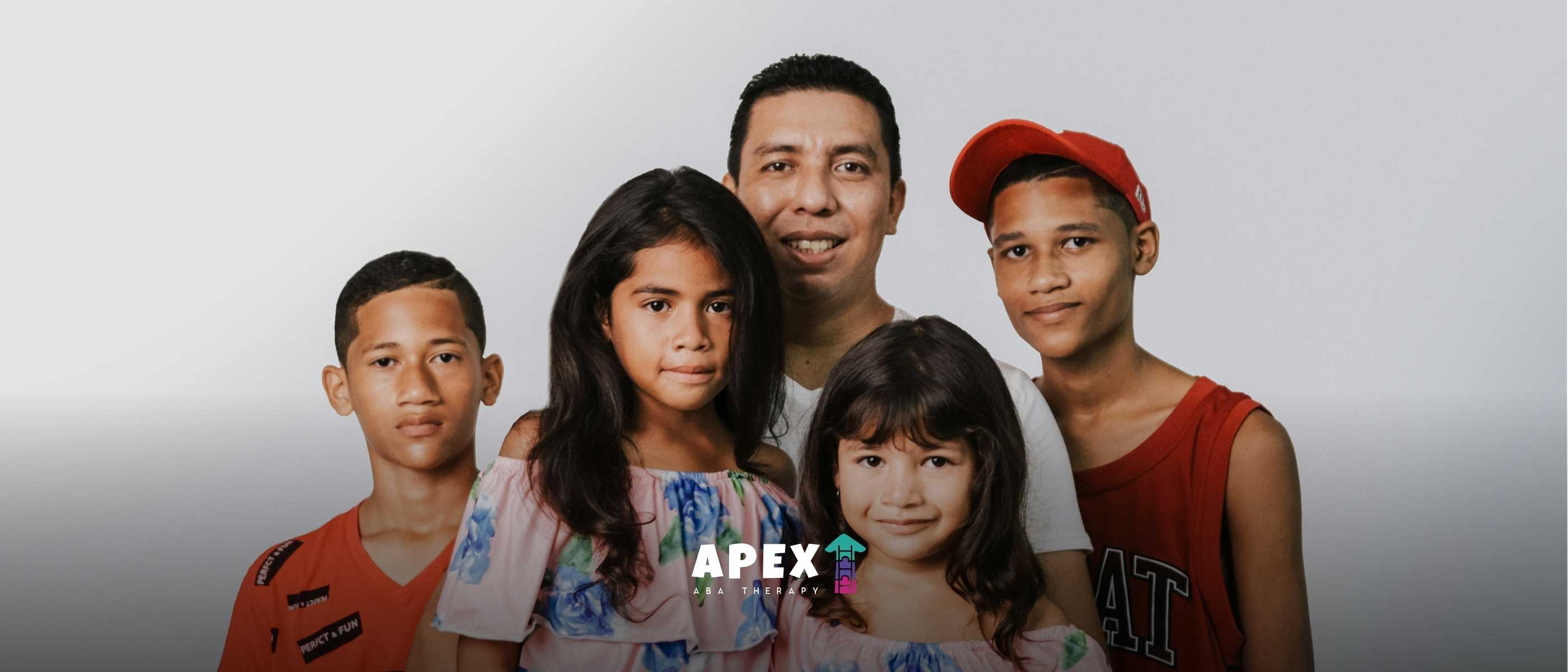Do Vaccines Cause Autism?
In this article, we will examine the evidence and explore the question: do vaccines cause autism?
.jpg)
Do Vaccines Cause Autism?
Do Vaccines Cause Autism?
In recent years, there has been a growing concern about the possible link between vaccines and autism. This concern has led some parents to choose not to vaccinate their children, which has contributed to the re-emergence of diseases such as measles and whooping cough.

The History of Vaccines and Their Impact on Public Health
Vaccines have been around for centuries, with the first recorded use of a vaccine dating back to 1796 when Edward Jenner developed a vaccine for smallpox. Since then, vaccines have played a vital role in public health, helping to eradicate or significantly reduce the incidence of many deadly diseases such as polio, measles, and rubella.
In the early years of vaccination, there was some resistance to this new medical intervention.
However, as people saw the benefits of vaccines and witnessed how they could protect against deadly diseases, vaccination became more widely accepted. In fact, vaccines have been so successful that smallpox has been eradicated from the planet.
Despite their success in preventing disease and saving lives, vaccines continue to face opposition from some groups who question their safety and effectiveness. However, the overwhelming consensus among medical professionals is that vaccines are safe and effective at preventing disease.

The Origin of the Vaccine-Autism Controversy
The controversy over the link between vaccines and autism began in 1998 when a study was published in The Lancet, a prestigious medical journal.
The study claimed to have found a connection between the measles, mumps, and rubella (MMR) vaccine and autism. The media quickly picked up on the story, and the study received widespread coverage.
However, it was soon discovered that the study was deeply flawed. The sample size was small, the study was not properly controlled, and the data was manipulated. The study's lead author, Andrew Wakefield, was found to have conflicts of interest and was later struck off the medical register for unethical conduct.
The Evidence Against a Link Between Vaccines and Autism
Since Wakefield's study, numerous studies have been conducted to investigate the supposed link between vaccines and autism. The overwhelming majority of these studies have found no evidence of a connection.
One of the largest and most comprehensive studies was conducted in Denmark, where researchers analyzed the medical records of over 650,000 children. The study found no link between the MMR vaccine and autism.
Another study, conducted in Japan, found that autism rates continued to rise even after the country stopped using the MMR vaccine. This suggests that there is no causal relationship between the vaccine and autism.
Is There a Connection Between Vaccines and Autism?
Many studies that have looked at whether there is a relationship between vaccines and autism spectrum disorder (ASD). To date, the studies continue to show that vaccines are not associated with ASD. - CDC
Despite the overwhelming evidence against a link between vaccines and autism, some people still believe that there is a connection. They point to anecdotal reports of children who were developing typically until they received a vaccine and then regressed into autism.
However, these anecdotes are not supported by scientific evidence. The timing of when a child receives a vaccine often coincides with the age at which autism symptoms become apparent, but this is simply a coincidence.
Autism is usually diagnosed between the ages of 2 and 4, which is also the age at which most children receive several vaccines.
Furthermore, studies have shown that there is no difference in autism rates between vaccinated and unvaccinated children. This suggests that vaccines are not causing autism.
It is important to remember that vaccines have saved countless lives and prevented numerous diseases. Choosing not to vaccinate can put individuals and communities at risk of serious illnesses.
While it is understandable for parents to be concerned about their children's health, it is important to base decisions on scientific evidence rather than rumors or anecdotes.
MMR Vaccine Controversy
Although the link between vaccines and autism has been debunked, the controversy surrounding the MMR vaccine continues. Some parents are still concerned about a potential link between this vaccine and autism, despite overwhelming scientific evidence to the contrary.
One of the reasons for this ongoing controversy is that some individuals have reported adverse reactions to the MMR vaccine. These reactions can include fever, rash, and soreness at the injection site. In rare cases, more serious side effects such as seizures or allergic reactions may occur.
However, these adverse reactions are extremely rare. The benefits of receiving the MMR vaccine far outweigh any potential risks. The vaccine is highly effective at preventing measles, mumps, and rubella - all of which can cause serious complications or even death.
It is also worth noting that many of the concerns surrounding the MMR vaccine originated from Andrew Wakefield's discredited study. Despite being thoroughly debunked by subsequent research, his claims continue to be cited by some anti-vaccine advocates.
In order to combat this ongoing controversy, it is important for healthcare professionals and public health officials to continue educating parents about the safety and efficacy of vaccines. By providing accurate information based on scientific evidence, we can help ensure that more children receive life-saving vaccinations.

The Importance of Vaccines
It is important to remember that vaccines are one of the most important public health interventions in history. They have saved countless lives and prevented the spread of deadly diseases such as polio, smallpox, and measles.
Choosing not to vaccinate your child not only puts them at risk of contracting a preventable disease but also puts others at risk. Some people cannot receive vaccines due to medical reasons, such as a weakened immune system.
These people rely on herd immunity to protect them from disease. When a large proportion of the population is vaccinated, it is much harder for diseases to spread, which helps protect those who cannot be vaccinated.
The Risks of Not Vaccinating Your Child
Choosing not to vaccinate your child can have serious consequences, both for your child and for others. One of the most significant risks is the resurgence of preventable diseases.
In recent years, there has been a worrying increase in the number of cases of measles and whooping cough, which were once almost eradicated in many countries. This is largely due to parents choosing not to vaccinate their children.
Measles, for example, is highly contagious and can be life-threatening. It can cause serious complications such as pneumonia and encephalitis, which can lead to brain damage or even death. Whooping cough is also highly contagious and can be particularly dangerous for babies who are too young to receive the vaccine.
By choosing not to vaccinate your child, you are not only putting them at risk but also contributing to the spread of these diseases in your community. This is because vaccines work by creating herd immunity – when enough people in a population are vaccinated against a disease, it becomes much harder for that disease to spread.
In other words, when you choose not to vaccinate your child, you are not only making an individual decision but also affecting the health of those around you. It is important to remember that vaccines are safe and effective and have been rigorously tested before being approved for use.
How Vaccines are Developed and Tested?
Vaccine development is a complex and rigorous process that can take years or even decades. Before a vaccine is approved for use, it must go through several stages of testing to ensure its safety and efficacy.
The first stage of vaccine development involves laboratory research, in which scientists identify the virus or bacteria that causes a particular disease and begin to develop a vaccine that can prevent infection. This stage can take several years and involves extensive testing in animals.
Once a potential vaccine has been identified, it moves on to clinical trials, which are designed to test the safety and efficacy of the vaccine in humans. Clinical trials typically involve three phases:
- Phase 1: Involves a small group of healthy volunteers who receive the vaccine to test its safety.
- Phase 2: Involves a larger group of people who receive the vaccine to test its safety and effectiveness.
- Phase 3: Involves thousands of people who receive the vaccine to confirm its safety and effectiveness.
After all three phases of clinical trials have been completed, the vaccine manufacturer submits an application for approval to regulatory agencies such as the US Food and Drug Administration (FDA).
Even after a vaccine has been approved for use, ongoing monitoring is conducted to ensure its continued safety and effectiveness. This includes post-marketing surveillance studies that monitor adverse events related to the vaccine.
Overall, vaccines are developed using rigorous scientific methods and undergo extensive testing before being approved for use. The safety and efficacy of vaccines have been demonstrated through numerous studies over many years.
The Ethical Considerations Surrounding Vaccine Mandates and Exemptions
One of the most contentious issues surrounding vaccines is whether or not they should be mandated. Some argue that mandatory vaccination is necessary to protect public health, while others believe that it violates individual rights.
On one hand, vaccine mandates can be seen as a way to protect vulnerable populations who cannot receive vaccines due to medical reasons. When enough people in a population are vaccinated against a disease, it becomes much harder for that disease to spread.
This helps protect those who cannot receive vaccines, such as infants or people with weakened immune systems.
Furthermore, vaccine mandates can help prevent outbreaks of preventable diseases. For example, in 2019, New York City implemented a mandatory measles vaccination policy in response to an outbreak of the disease. This policy helped bring the outbreak under control and prevent further spread of the disease.
However, some argue that vaccine mandates violate individual rights and autonomy. They believe that individuals should have the right to make their own decisions about their healthcare without government interference.
There are also concerns about the potential for vaccine mandates to exacerbate existing health disparities.
For example, some communities may have limited access to healthcare or face barriers such as language or cultural differences that make it difficult for them to access vaccines. Mandating vaccines without addressing these underlying issues could further marginalize these communities.
To address these concerns, many countries and states allow exemptions from vaccine mandates for medical or religious reasons. However, there is debate about whether non-medical exemptions should be allowed given the potential risks they pose to public health.
Ultimately, deciding whether or not to mandate vaccines requires balancing individual rights with public health considerations. It is important for policymakers to consider all aspects of this complex issue when making decisions about vaccine mandates and exemptions.
The Role of Vaccination in Global Health Efforts
Vaccination plays a critical role in global health efforts, particularly in the eradication of diseases. Thanks to widespread vaccination campaigns, smallpox was declared eradicated in 1980 – the first disease to be completely wiped out.
In recent years, there have been concerted efforts to eradicate other diseases such as polio and measles. While these efforts have faced challenges, progress has been made. For example, the number of polio cases worldwide has decreased by over 99% since 1988.
Vaccines are also an important tool for controlling outbreaks of infectious diseases. When an outbreak occurs, public health officials often rely on a combination of vaccines and other measures such as quarantine and contact tracing to contain the spread of the disease.
Furthermore, vaccines can help reduce healthcare costs by preventing illnesses that require expensive medical treatment. For example, a single case of measles can cost over $10,000 to treat. By preventing these illnesses through vaccination, we can save money and resources that can be used for other healthcare needs.
Overall, vaccination is a crucial component of global health efforts. It has played a significant role in eradicating diseases and controlling outbreaks, and has the potential to save countless lives and resources in the future.
FAQs
Can vaccines cause autism in some children?
No, there is no scientific evidence to support the claim that vaccines can cause autism in some children. Numerous studies have been conducted on this topic, and none of them have found a causal relationship between vaccines and autism.
What about thimerosal?
Thimerosal is a preservative that was once used in some vaccines. It contains a form of mercury, which led to concerns that it could be causing neurological damage and autism. However, numerous studies have shown that thimerosal does not increase the risk of autism or other developmental disorders.
Are there any long-term side effects of vaccines?
Serious side effects from vaccines are extremely rare. The most common side effects are mild and include soreness at the injection site or fever. Long-term side effects are even more rare, as vaccines undergo rigorous testing before being approved for use.
Do I really need to vaccinate my child if everyone else is vaccinated?
Yes, it is still important to vaccinate your child even if others around them are vaccinated. Vaccines do not provide 100% protection against disease, so there is always a small risk of infection. Additionally, some people cannot receive vaccines due to medical reasons, so they rely on herd immunity to protect them from disease.
What should I do if I'm worried about vaccine safety?
It's understandable to be concerned about your child's health. If you have questions or concerns about vaccine safety, talk to your healthcare provider. They can provide accurate information based on scientific evidence and help address any concerns you may have.
Conclusion
In conclusion, the evidence overwhelmingly suggests that vaccines do not cause autism. The supposed link between vaccines and autism is based on a flawed study that has been discredited by the scientific community.
Choosing not to vaccinate your child puts them and others at risk of contracting preventable diseases. Vaccines are one of the most important public health interventions in history, and it is imperative that we continue to promote their use.
Sources
Frequently Asked Questions
.jpg)
Autism And Bed Wetting: Unlocking Solutions
Explore the connection between autism and bedwetting and find practical insights and solutions for parents and caregivers. Discover how understanding and support can make a difference in managing this common challenge for children and individuals on the autism spectrum.

Proven Examples of Smart Goals for Students with Autism
Unlock the potential of students with autism through proven examples of SMART goals. Set them up for success!
.jpg)
What is the Sensory Processing Disorder ICD-10 Code?
If you or someone you know has been diagnosed with Sensory Processing Disorder (SPD), you may have heard of the ICD-10 code. In this article, we'll explain what the SPD ICD-10 code is, what it means, and why it's important.

Understanding Vestibular Stimming in Autism
Demystifying vestibular stimming in autism: Understand the impact, strategies, and support for individuals. Uncover the power of self-regulation through stimming.

Do Amish Kids Get Autism?
Explore the prevalence of autism in Amish children and uncover the factors that may contribute to this phenomenon. Delve into the unique characteristics of Amish communities and their impact on autism rates.

Breaking Barriers: Free Sensory Toys for Autism That Make a Difference
Discover life-changing free sensory toys for autism! Unlock the power of sensory play for children with autism.

Famous People Thriving with Autism or Aspergers Syndrome
Discover the extraordinary journeys of famous people thriving with autism and Asperger's syndrome. Unveil the inspiring stories of icons who break stereotypes.

IEP Goals for Autism: Ultimate Guide
Unlock the potential: Constructing meaningful IEP goals for autism to support your child's growth and development. Discover strategies and examples!

Young Celebrities with Autism
Discover inspiring young celebrities with autism and their journeys in entertainment and advocacy.
.jpg)
Autism Hand Posturing: Causes, Types, and Management
Autism hand posturing refers to repetitive and often purposeless movements or postures of the hands and fingers seen in individuals with autism. These movements range from simple hand flapping to more complex finger twisting and tapping.

Distinguishing ADHD vs Autism Stimming
ADHD stimming vs autism stimming: Discover the motivations and characteristics behind these behaviors in individuals.

Addressing Rigid Thinking in Autism
Unlocking flexibility in autism! Discover strategies, therapy, and tools to address rigid thinking for a brighter future.

DSM 6 Release Date Revealed
Unlock the future with DSM-6! Discover the release date and anticipated changes in the mental health landscape.

Why Do Autistic People Rock?
Uncover insights with empathy, exploring the diverse ways rocking serves as a coping mechanism and sensory regulation for individuals on the autism spectrum. Join us in celebrating the beauty of neurodiversity, fostering understanding and appreciation for this distinctive aspect of autistic experience.

Signs Your Toddler Is Not Autistic
Discover reassuring signs that your toddler may not be autistic in this human-centered guide. Explore the joy of your child's unique developmental journey, celebrating their social engagement and communication skills.
.jpg)
Facial Features & Physical Characteristics Of Autism
Some researchers believe that these physical characteristics are related to the underlying neurological differences in individuals with autism.

The Three Main Causes of Autism: Exploring Genetics, Environment, and Brain Differences
Autism is influenced by genetics, environmental factors, and brain differences. Learn how these three causes contribute to the development of the condition.

What are the Common Behaviors of Autism?
Autism behaviors can vary widely. Learn about the most common traits, from social difficulties to sensory sensitivities, and how ABA therapy can support progress.

What Age is Too Late for ABA Therapy?
It’s never too late to start ABA therapy. Discover how children, teens, and adults can still make meaningful progress with personalized ABA support.

Is In-Home ABA the Right Fit for Your Child? Here’s What You Need to Know
In-home ABA therapy offers a tailored approach to support your child’s development. Learn how it can improve key skills like communication, social interaction, and more.

How Families Can Make ABA Therapy a Positive and Successful Experience
Learn how families can ensure ABA therapy is a positive, successful experience. Discover tips for involvement, consistency, and support to make ABA effective.

Can a Child Have Autism and Still Talk Normally?
Can a Child Have Autism and Still Talk Normally?

What Are the Red Flags for Autism in a 2-Year-Old?
Autism Red Flags in 2-Year-Old Children | Apex ABA

Is Autism a Lifelong Condition?
Is Autism a Lifelong Condition? Understanding The Journey

Best Age to Start ABA Therapy & What Parents Should Know
Best Age to Begin ABA Therapy for Children | Apex ABA

What’s the Difference Between High-Functioning Autism and Asperger’s?
Difference Between High-Functioning Autism and Asperger’s

ABA Therapy Enhancing Social Skills: A Key to Improved Communication and Interaction for Children with Autism
How ABA Therapy Helps Children Build Social Skills

Misconceptions About ABA Therapy: Clearing Up the Myths
Common Misconceptions About ABA Therapy | Apex ABA

What Does It Mean to Be “On the Spectrum”?
What Does It Mean to Be on the Autism Spectrum? | Apex ABA

Understanding the Power of Functional Behavior Assessment ABA
Effective ABA Techniques for Behavioral Intervention

Discover How ABA Helps ADHD in Your Child’s Life
How ABA Therapy Helps Children with ADHD | Apex ABA

Life-Changing ABA Therapy Case Studies You Need to Know
Real Success Stories from ABA Therapy Journeys | Apex ABA

Can Children “Outgrow” Autism?
Can Children Outgrow Autism? Understanding the Facts

Is Autism a Mental Illness or a Developmental Disorder?
Mental Illness or Developmental Disorder Explained

Is Autism More Common in Boys Than Girls?
Autism in Boys vs Girls: What the Research Reveals

What is the Difference Between Autism and Sensory Processing Disorder?
Autism vs Sensory Processing Disorder Differences | Apex ABA

What's the Difference Between Autism and Speech Delay?
Autism vs Speech Delay & Key Differences Explained | Apex

ABA Therapy in North Carolina: A Complete Guide for Families
Learn everything about ABA therapy in North Carolina, including services, costs, insurance coverage, and how to choose the best ABA provider in North Carolina.

ABA Therapy vs Preschool: Making the Right Choice Explained
Learn the key differences between ABA therapy and preschool to help you choose the best option for supporting your child’s early learning and development.

Which Personality Type Is Most Likely to Be Autistic?
Which Personality Type Is Most Likely to Be Autistic? | Apex ABA

Why Consistency Matters: What Happens If ABA Therapy Ends Prematurely
What Happens If ABA Therapy Is Stopped Too Early? | Apex ABA

How Can You Gain an Autistic Person’s Attention? Tips for Meaningful Connection
How Can You Gain an Autistic Person’s Attention?

Sensory Sensitivity and Sixth Sense: What Autism Research Shows
Do Autistic People Have Sixth Sense? | Apex ABA

What Happens If Autism Is Left Untreated?
Can Autism Get Worse If Untreated? | Apex ABA

What Not To Do With An Autistic Child: Avoid These 10 Mistakes
What Not To Do With An Autistic Child? | Apex ABA

Coping with Regressive Autism: Tips for Parents
What is Regressive Autism? | Apex ABA

Do Autistic Kids Live with Parents Forever? Here’s the Reality
Do autistic kids live with parents forever? Discover the facts about independence and living arrangements in autism with expert-backed insights.

Red Flags in ABA Therapy: What Parents Must Watch For
What are the red flags in ABA therapy? Learn to identify warning signs for safe, effective autism treatment in this blog.

Can You Go from Level 3 Autism to Level 1? Is It Possible?
Can you go from level 3 autism to level 1? Learn about progress, therapy, and support options with expert help from Apex ABA.

Autism vs Introversion: How to Tell the Difference
Is it autism or just introversion? Learn the key differences and signs with expert insights from Apex ABA.

ABA for Managing Transitions: Tips to Ease Change for Kids
Learn how ABA for managing transitions helps children with autism handle change smoothly.

Understanding the 7 Dimensions of ABA for Better Outcomes
Discover the 7 Dimensions of ABA and how they can lead to better outcomes.

5 Unique Autistic Love Languages You Should Know About
Discover the 5 unique autistic love languages that can enhance your relationships.

Transforming Futures: Improving Lives of Kids with Autism
Discover how innovative strategies are focused on improving lives of kids with autism.

ABA Therapy Techniques for Addressing Repetitive Behaviors in Autism
Harnessing ABA Strategies to Tackle Repetitive Behaviors in Autism

The Role of ABA Therapy in Enhancing Communication Skills
Transforming Communication for Children with Autism Through ABA Therapy

How ABA Therapy Supports Effective Communication in Nonverbal Children
Unlocking Speech Through ABA: Transformative Paths for Nonverbal Children

How to Help Your Child Transfer Skills Learned in ABA Therapy to Real Life
Unlocking Real-World Success for Children in ABA Therapy

How ABA Therapy Helps Children Develop Better Organizational Skills
Empowering Children with ABA Therapy for Enhanced Organizational Skills

The Importance of Creating a Structured Routine in ABA Therapy
How Structured Routines Transform ABA Therapy for Autism

The Role of ABA Therapy in Developing Conflict Resolution Skills
How ABA Therapy Transforms Conflict Resolution Competence

The Importance of Generalization in ABA Therapy for Autism
Unraveling the Role of Generalization in Enhancing ABA Therapy Outcomes

Why ABA Therapy is Crucial for Parents of Children with Autism
The Transformative Impact of ABA Therapy on Families with Autistic Children

How to Involve Parents in the ABA Therapy Process
Maximize Parent Engagement in ABA Therapy for Better Outcomes

What are the Core Principles of ABA Therapy?
Exploring the Cornerstones of Applied Behavior Analysis

Why Communication is Key in ABA Therapy for Autism
The Crucial Role of Communication in ABA Therapy for Autism

Why ABA Therapy Works for Children with Autism Regardless of Severity
Effective ABA Interventions for All Levels of Autism

Why It’s Important to Maintain a Balanced Approach to ABA Therapy
Balancing Effectiveness and Ethics in ABA Therapy

The Role of ABA Therapy in Developing Adaptive Behavior Skills
Exploring How ABA Therapy Transforms Lives

The Benefits of Combining ABA Therapy with Speech Therapy
Maximizing Development with Integrated Therapy Approaches

What to Expect During an ABA Therapy Session
Demystifying ABA Therapy Sessions: A Comprehensive Overview

How ABA Therapy Enhances Cognitive Functioning in Children with Autism
Exploring the Influence of Applied Behavior Analysis on Autism Cognition

How ABA Therapy Helps Children with Autism with Transitions Between Activities
Easing Transitions for Children with Autism: The Role of ABA Therapy

How to Foster Cooperation Between Parents and Therapists in ABA Therapy
Building Effective Partnerships in ABA Therapy

The Role of Positive Reinforcement in ABA Therapy
Exploring the Impact of Positive Reinforcement in Modern ABA Therapy

Why ABA Therapy is Effective for Children of All Ages
Understanding the Reach and Impact of ABA Therapy Across Age Groups

How to Support Your Child’s Emotional Growth with ABA Therapy
Harnessing ABA Therapy for Enhancing Emotional Development in Children with Autism

The Role of ABA Therapy in Enhancing Peer Relationships for Children with Autism
Harnessing ABA Therapy to Boost Social Connections Among Autistic Children

How to Overcome Common Challenges in ABA Therapy
Navigating Hurdles in ABA Therapy: Strategies and Solutions

How to Manage Behavioral Expectations with ABA Therapy
Understanding Applied Behavior Analysis in Behavioral Management

How ABA Therapy Promotes Emotional Regulation in Children with Autism
Unlocking Emotional Balance: ABA Therapy's Role in Autism

How ABA Therapy Improves Social Skills in Children with Autism
Harnessing ABA Therapy to Enhance Social Competency in Autistic Children

The Role of ABA Therapy in Classroom Success for Children with Autism
Harnessing ABA for Academic and Social Growth in Autism

The Importance of Evaluating and Revising ABA Therapy Goals Regularly
Regular Evaluations: The Cornerstone of ABA Therapy Success

How to Choose the Right ABA Therapy Program for Your Child
Finding the Perfect ABA Therapy Fit for Your Child

The Role of Behavior Analysts in Implementing ABA Therapy
Understanding the Vital Contributions of Behavior Analysts in ABA Therapy

The Role of RBTs (Registered Behavior Technicians) in ABA Therapy
A Closer Look at the Essential Work of RBTs in ABA Therapy

What Makes ABA Therapy Effective for Different Learning Styles?
Unraveling the Flexibility and Effectiveness of ABA Therapy

Understanding the Importance of Data Collection in ABA Therapy
The Role of Data in Shaping Effective ABA Therapy

How ABA Therapy Helps with Toilet Training in Children with Autism
Unlocking Independence: ABA's Role in Autism Toilet Training

The Importance of Encouraging Natural Play in ABA Therapy
Revolutionizing ABA Therapy with Natural Play

How to Make the Most of ABA Therapy at Home
Enhancing ABA Therapy Practices Within Your Home

How to Make ABA Therapy Fun and Engaging for Children with Autism
Transforming ABA Therapy into a Fun Learning Journey

The Role of ABA Therapy in Addressing Verbal and Nonverbal Communication in Autism
Enhancing Communication Skills in Autism Through ABA Therapy

Understanding the Role of Family in ABA Therapy for Autism
The Crucial Impact of Family Engagement in Autism Therapy

How to Handle Setbacks and Challenges in ABA Therapy
Navigating Difficulties and Setbacks in ABA Therapy for Children

How ABA Therapy Can Help Children Build Stronger Relationships with Peers
Unpacking the Influence of ABA Therapy on Peer Relationships in Children

Understanding the Concept of Shaping in ABA Therapy
Demystifying Shaping Techniques in Applied Behavior Analysis

How ABA Therapy Enhances Independent Living Skills in Autism
Unlocking Independence: The Role of ABA Therapy in Autism
.jpg)
90+ Reading Statistics, Facts and Demographics
In this article, we will dive into 60 reading statistics that shed light on the importance of reading and its impact on different aspects of life.



